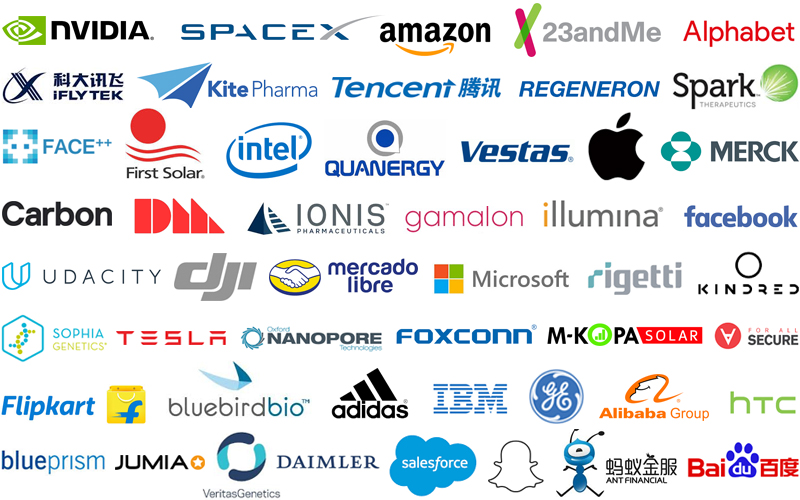Greenpeace Report Praises Apple’s Closed-Loop Supply Chain, Slams Samsung and Amazon

While Apple featured as the second most responsible company, Samsung and Amazon faced heavy criticism from the report with the authors going so far as to say Amazon is “one of the least transparent companies in the world in terms of its environmental performance.”
Greenpeace has released a new version of its Guide to Greener Electronics.
This breakdown offers a look at how several tech companies, such as Apple, Amazon, and Google, are handling their environmental and renewable habits.
The organization gives Apple an overall grade of B-.
More specifically, Greenpeace gives Apple an A- in its energy efforts, a B in chemicals, and a C in resources.
The organization praises Apple for its supply chain work and push towards renewable energy:
- Less than half of the companies here have adopted renewable energy targets for their own operations, and Apple is the only company to have set a renewable energy goal for its supply chain.
- Apple has now succeeded in getting 14 suppliers to make near-term commitments to become 100% renewably powered for the Apple-related portion of the supplier’s energy demand.
- Companies can start with setting a goal to reduce supply chain emissions like HP or actively partner with suppliers to procure renewable energy like Apple.
Further building on supply chain praise, Greenpeace points to Apple’s promise of closing the supply chain as an example of progress being made in using secondary materials:
- Few IT companies have incorporated recycled plastics in their products for several years, very little progress has been made in sourcing other secondary materials into new products.
- Apple recently committed to “closing the loop” for its materials, starting with tin and aluminum.
Greenpeace does, however, note that Apple is not doing much when it comes to repairability and renewable product design, noting of “planned obsolescence as a design feature.”
“Apple, Microsoft, and Samsung are among the companies moving in the wrong direction on sustainable product design.”
- Apple continues to design products with proprietary parts to limit access and actively lobbies against the right to repair legislation in New York and Nebraska.
- It is reported that Apple and Sony have blocked attempts to strengthen environmental electronics standards that would encourage device designs that are easier to repair, upgrade, and disassemble for recycling.
It shouldn’t come as too big of a surprise that Greenpeace uses the resources category to drag Apple’s overall grade down.
The organization has previously called out Apple for its poor repairability ratings and that doesn’t appear to be changing anytime soon.
Apple has long been a leader in protecting the environment, with the company operating under the goal of leaving the earth better than they found it.
That’s certainly highlighted by the Greenpeace report.
The report also highlighted that tech companies' manufacturing processes are not as environmentally friendly as their innovative images might suggest.
While the energy consumption in the tech industry rose rapidly to fuel the supply chains and the manufacturing of these products as well as the data centers where social media, cloud computing, and other applications run, so have the greenhouse gas emissions.
Samsung Electronics received a grade of D in its use of renewable energy, which accounted for just 1% of its manufacturing process, compared with Apple, which relied on renewable energy for 96% of its operation.
Samsung, the world's largest maker of smartphones and key component suppliers of many of the tech companies featured in the report, saw its greenhouse gas emissions rise 24% in 2016 from two years ago.
It also received low marks for its efforts to reduce and disclose hazardous chemicals at workplaces and to design long-lasting products. Samsung Electronics did not immediately respond to an email seeking comment.
Chinese smartphone makers Huawei, Xiaomi, Oppo and Vivo, which have gained a significant market share in the last few years, have scored below average in all categories and lacked transparency and commitment in renewable energy, the report said.
Amazon was the only U.S. company that received the lowest mark, an F, in its overall environmental performance, along with the Chinese phone makers.
Greenpeace said Amazon was among the least transparent companies and did not report the greenhouse gas footprint of its own operations.
Related Article: The 50 Smartest Companies in the World
Related Report
Greenpeace: Guide to Greener Electronics
This Guide to Greener Electronics is an analysis of what 17 of the world’s leading consumer electronics companies are doing to address their environmental impacts and how these companies stack up.
Article Topics
Greenpeace News & Resources
Greenpeace Report Praises Apple’s Closed-Loop Supply Chain, Slams Samsung and Amazon Greenpeace: Guide to Greener ElectronicsLatest in Supply Chain
TIm Cook Says Apple Plans to Increase Investments in Vietnam Amazon Logistics’ Growth Shakes Up Shipping Industry in 2023 Spotlight Startup: Cart.com is Reimagining Logistics Walmart and Swisslog Expand Partnership with New Texas Facility Nissan Channels Tesla With Its Latest Manufacturing Process Taking Stock of Today’s Robotics Market and What the Future Holds U.S. Manufacturing Gains Momentum After Another Strong Month More Supply Chain















